Integrate Soda with Alation
Integrate Soda with Alation to access details about the quality of your data from right within your data catalog.
Integrate Soda with Alation to access details about the quality of your data from within the data catalog.
Run data quality checks using Soda and visualize quality metrics and rules within the context of a data source, dataset, or column in Alation.
Use Soda Cloud to flag poor-quality data in lineage diagrams and during live querying.
Give your Alation users the confidence of knowing that the data they are using is sound.
🎥 Watch a 5-minute overview showcasing the integration of Soda and Alation.
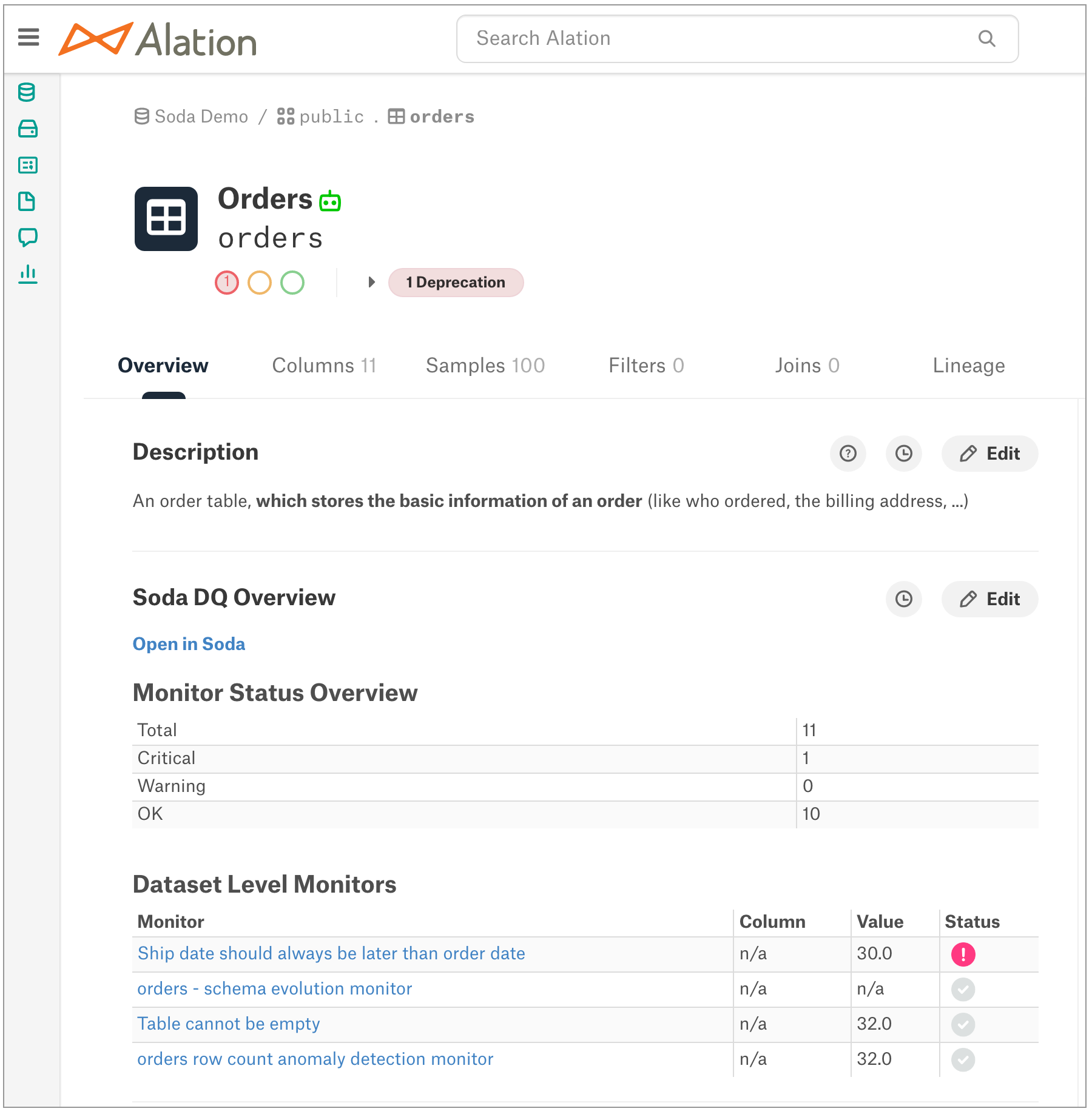
Prerequisites
You have completed at least one Soda scan to validate that the data source’s datasets appear in Soda Cloud as expected.
You have an Alation account with the privileges necessary to allow you to add a data source, create custom fields, and customize templates.
You have a git repository in which to store the integration project files.
Set up the integration
🎥 Watch a 5-minute video that demonstrates how to integrate Soda and Alation.
Sign into your Soda Cloud account and confirm that you see the datasets you expect to see in the data source you wish to test for quality.
To connect your Soda Cloud account to your Alation Service Account, create an
o the example below. Refer to [Generate API keys]() to obtain the values for your Soda API keys.
To sync a data source and schema in the Alation catalog to a data source in Soda Cloud, you must map it from Soda Cloud to Alation. Create a
.datasource-mapping.ymlfile in your integration project and populate it with mapping data according to the following example. The table below describes where to retrieve the values for each field.
name
A name you choose as an identifier for an integration between Soda Cloud and a data catalog.
soda:
datasource_id
The data source information panel in Soda Cloud.
soda:
datasource_name
The data source information panel in Soda Cloud.
soda:
dataset_mapping
(Optional) When you run the integration, Soda automatically maps all of the datasets between data sources. However, if the names of the datasets differ in the tools you can use this property to manually map datasets between tools.
catalog:
type:
The name of the cataloging software; in this case, “alation”.
catalog:
datasource_id
Retrieve this value from the URL on the data source page in the Alation catalog; see image below.
catalog:
datasource_container_name
The schema of the data source; retrieve this value from the data source page in the Alation catalog under the subheading Schemas. See image below.
catalog:
datasource_container_id
The ID of the datasource_container_name (the schema of the data source); retrieve this value from the schema page in the Alation catalog. See image below
Retrieve the Alation datasource_id from the URL
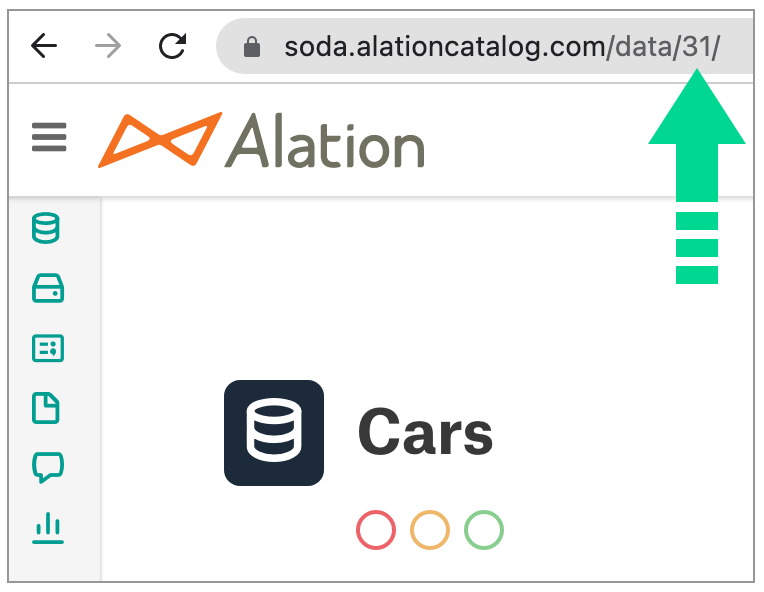
Retrieve the Alation datasource_container_name (schema) from the data source page
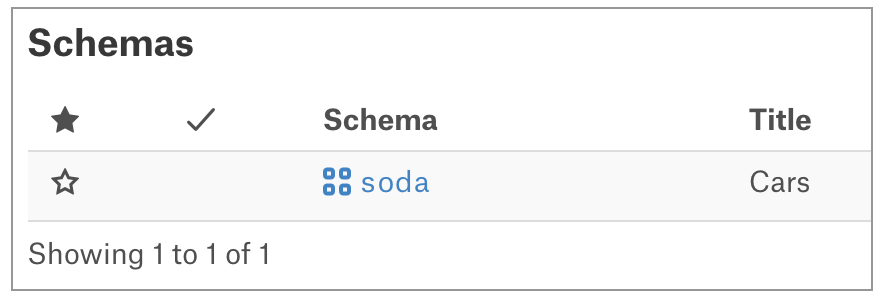
Retrieve the Alation datasource_container_id for the datasource_container_name from the URL in the Schema page.
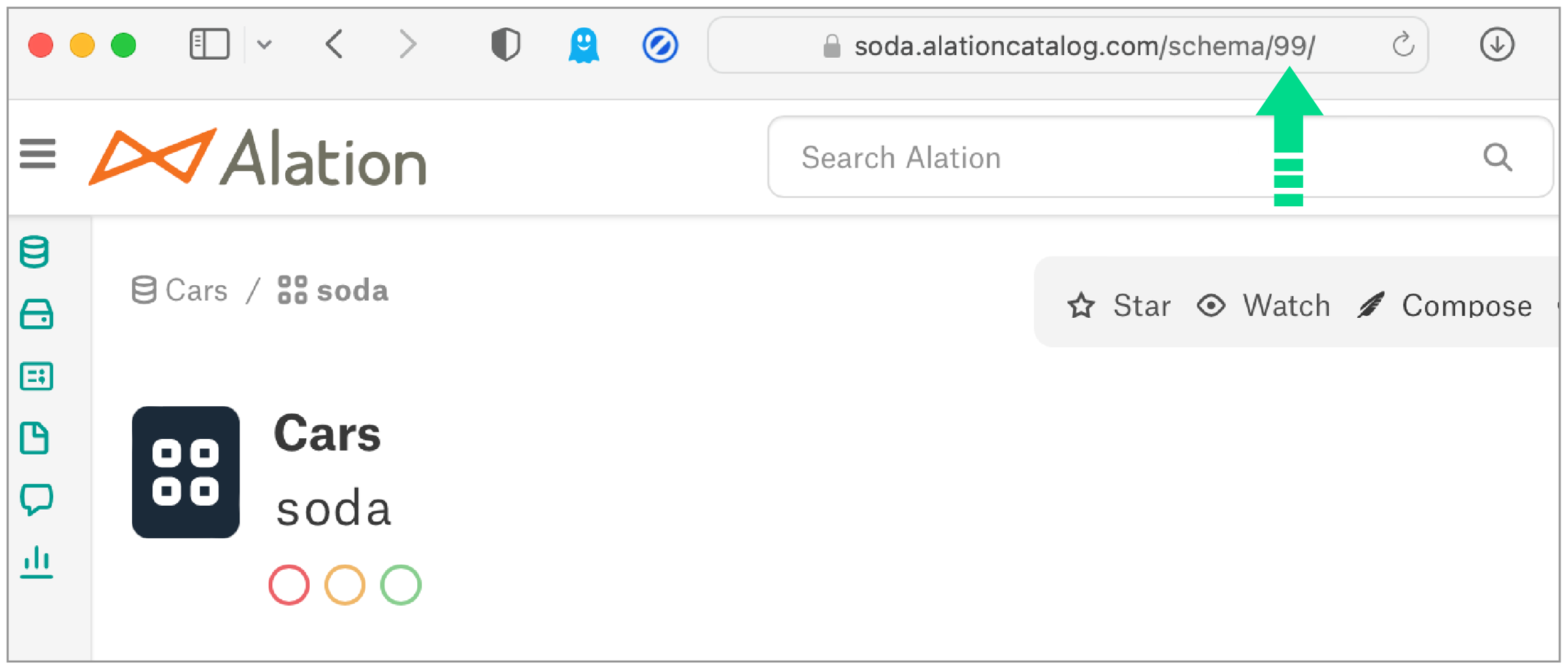
Enable API access to Alation with SSO
If your Alation account employs single sign-on (SSO) access, you must Create an API service account for Soda to integrate with Alation.
If your Alation account does not use SSO, skip this step and proceed to Customize the catalog.
Customize the catalog
Create custom fields in Alation that reference information that Soda Cloud pushes to the catalog. These are the fields the catalog users will see that will display Soda Cloud data quality details. In your Alation account, navigate to Settings > Catalog Admin > Customize Catalog. In the Custom Fields tab, create the following fields:
Under the Pickers heading, create a field for “Has DQ” with Options “True” and “False”. The Alation API is case sensitive so be sure to use these exact values.
Under the Dates heading, create a field for “Profile - Last Run”.
Under the Rich Texts heading, create the following fields:
“Soda DQ Overview”
“Soda Data Quality Rules”
“Data Quality Metrics”
Add each new custom field to a Custom Template in Alation. In Customize Catalog, in the Custom Templates tab, select the Table template, then click Insert… to add a custom field to the template:
“Soda DQ Overview”
In the Table template, click Insert… to add a Grouping of Custom Fields. Label the grouping “Data Quality Info”, then Insert… two custom fields:
“Has DQ”
“Profile - Last Run”
In the Column template, click Insert… to add a custom field to the template:
“Has DQ”
In the Column template, click Insert… to add a Grouping of Custom Fields. Label the grouping “Soda Data Profile Information”, then Insert… two custom fields:
Data Quality Metrics
Soda Data Quality Rules
Run the integration
Contact [email protected] directly to acquire the assets and instructions to run the integration and view Soda Cloud details in your Alation catalog.
Use the integration
Access Soda Cloud to create no-code checks or create agreements that execute checks against datasets in your data source each time you run a Soda scan manually, or orchestrate a scan using a data pipeline tool such as Airflow. Soda Cloud pushes data quality scan results to the corresponding data source in Alation so that users can review data quality information from within the catalog.
In Alation, beyond reviewing data quality information for the data source, users can access the Joins and Lineage tabs of individual datasets to examine details and investigate the source of any data quality issues.
Open in Soda
In a dataset page in Alation, in the Overview tab, users have the opportunity to click links to directly access Soda Cloud to scrutinize data quality details; see image below.
Under the Soda DQ Overview heading in Alation, click Open in Soda to access the dataset page in Soda Cloud.
Under the Dataset Level Monitors heading in Alation, click the title of any monitor to access the check info page in Soda Cloud.
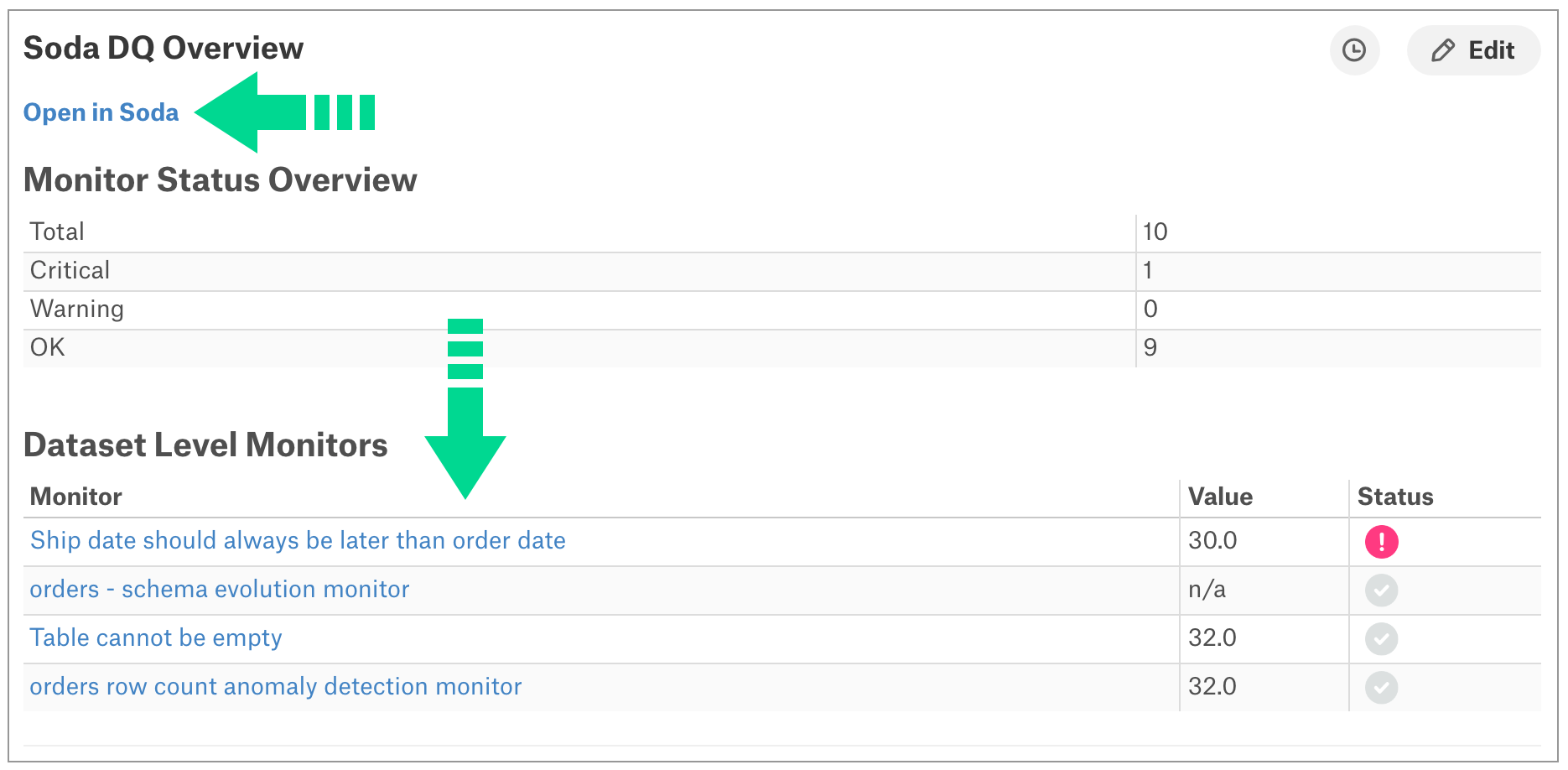
Go further
Access a list of all integrations that Soda Cloud supports.
Need help? Join the Soda community on Slack.
Last updated
Was this helpful?
